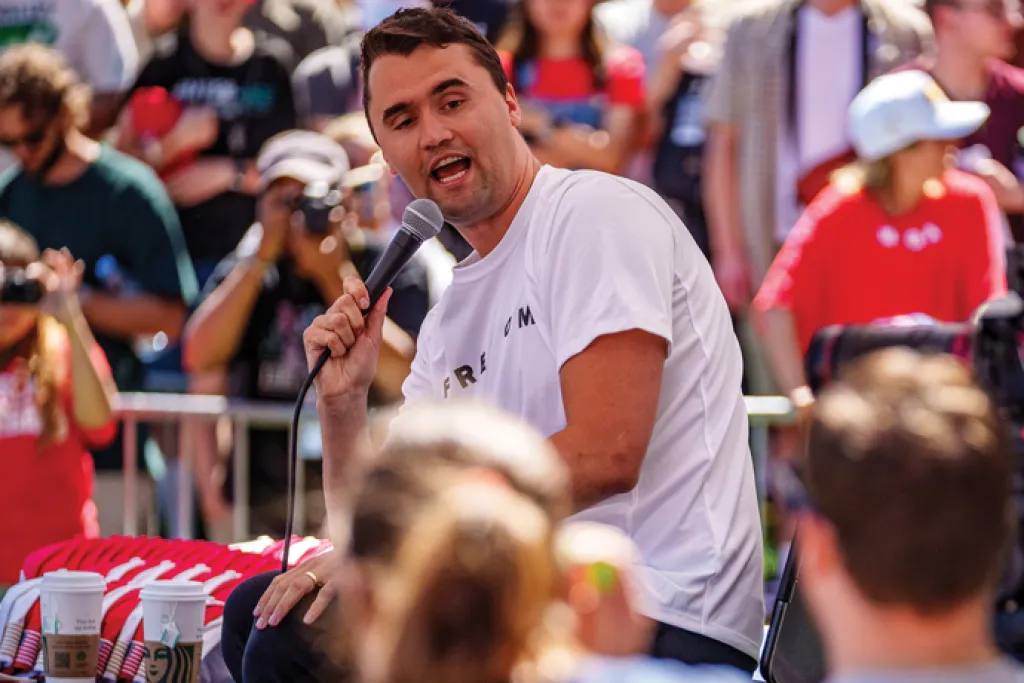Charlie Kirk's free speech, anti-violence legacy

For those of us of a certain age, the assassination of Charlie Kirk brought back memories of other momentous assassinations — the moment of disbelief and then stomach-turning horror on first hearing the news, the sense that events were tilting wildly out of kilter, the fear that more terrible things were in the offing.
I was a college sophomore visiting another school on that sunny Friday afternoon in November 1963 when I heard, and for a few seconds did not believe, that President John Kennedy had been shot and killed in Dallas. I had been intending to attend a Saturday football game, which, of course, was canceled, and somehow made it back home, dazed, on a bus.
In the days that followed, Kennedy’s family and admirers, and much of the media, attributed his assassination to an atmosphere of right-wing hate in Dallas. It was solemnly asserted that America was fundamentally a violent nation.
WHAT THE MURDER OF CHARLIE KIRK MEANS
But in the messier and not universally accepted reality, the assassin was a Communist who had lived and married in Russia and had been in touch with Soviet agents. In retrospect, I think political leaders were reluctant to blame the president’s assassination on the Soviets, for fear the American people would clamor for war against a nuclear foe.